
Find Help
More Items From Ergsy search
-

What treatments are available for Alzheimer's disease?
Relevance: 100%
-

What is Alzheimer's disease?
Relevance: 90%
-

How common is Alzheimer's disease in the UK?
Relevance: 88%
-
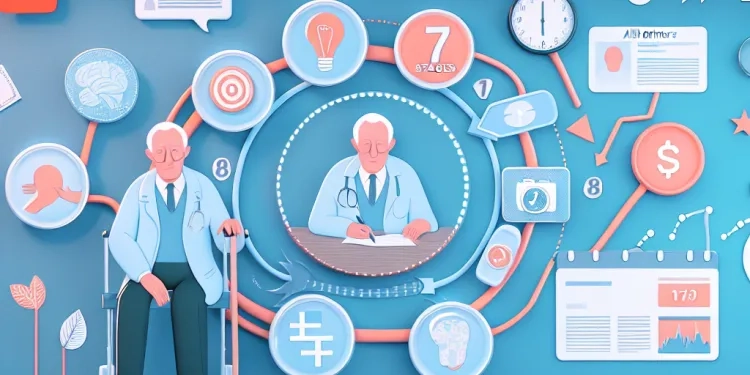
What are the stages of Alzheimer's disease?
Relevance: 83%
-

What causes Alzheimer's disease?
Relevance: 82%
-

Can Alzheimer's disease be prevented?
Relevance: 82%
-
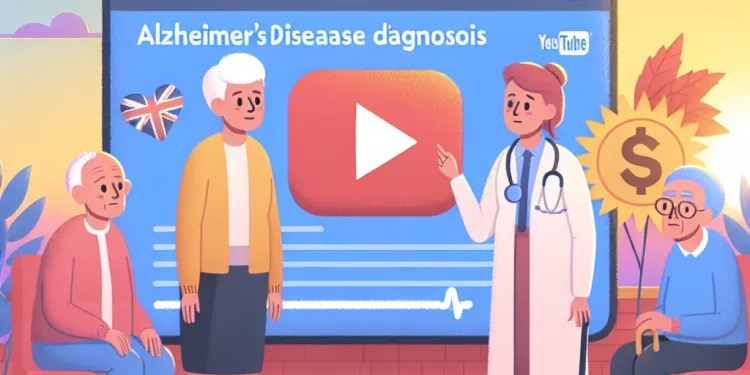
How is Alzheimer's disease diagnosed?
Relevance: 81%
-
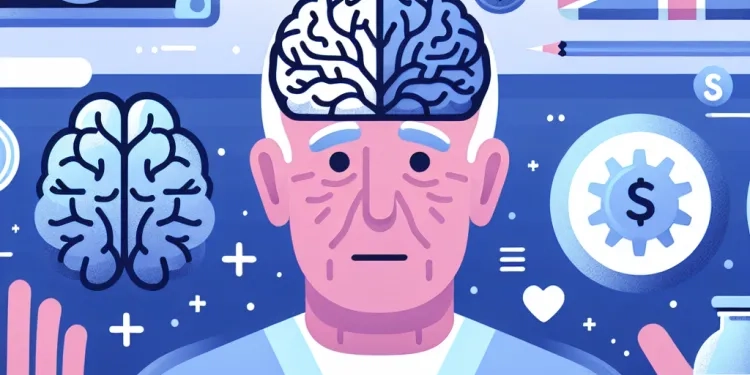
What are the symptoms of Alzheimer's disease?
Relevance: 79%
-
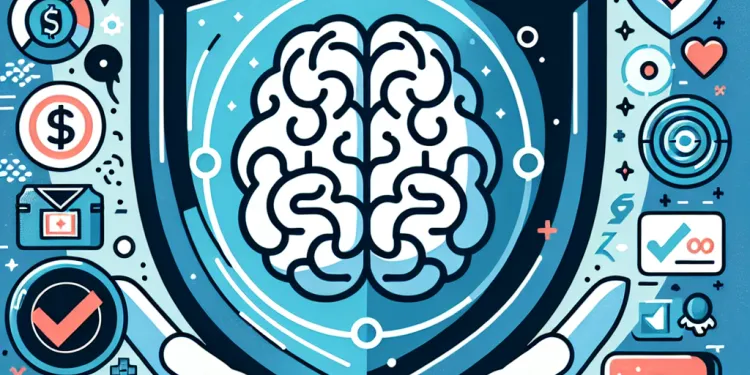
Who is at risk of developing Alzheimer's disease?
Relevance: 78%
-
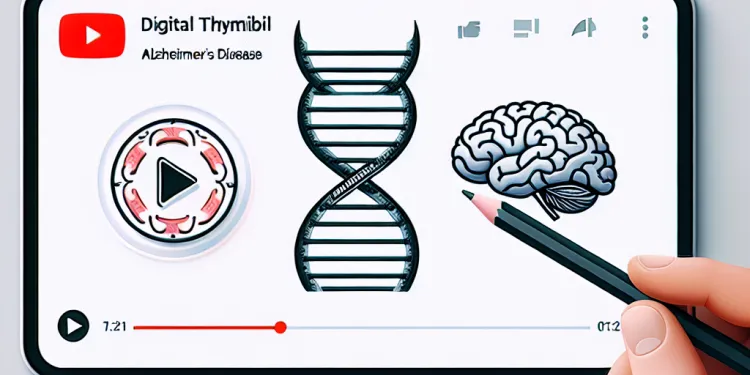
What role does genetics play in Alzheimer's disease?
Relevance: 75%
-

Where can I find information about Alzheimer's disease for carers?
Relevance: 71%
-
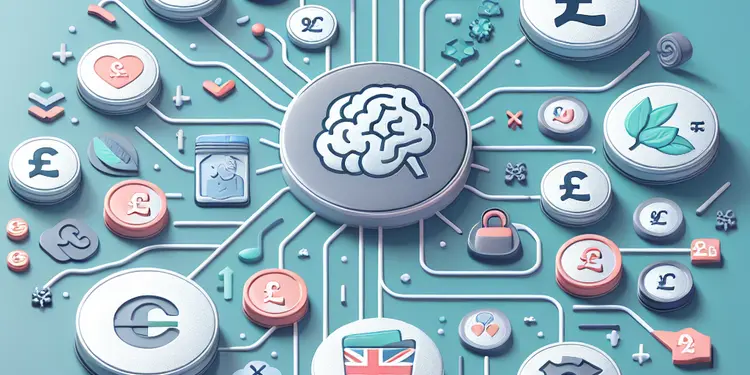
How can carers plan for future stages of Alzheimer's disease?
Relevance: 70%
-

How does Alzheimer's affect daily life?
Relevance: 60%
-

Can technology aid in the care of Alzheimer's patients?
Relevance: 58%
-

What support is available for carers of Alzheimer's patients?
Relevance: 55%
-
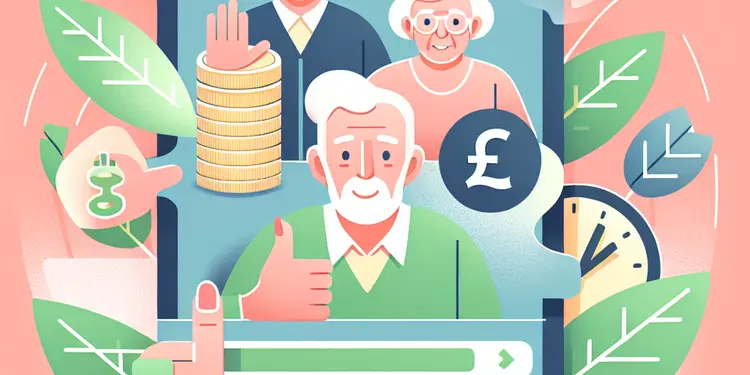
What online communities exist for carers of people with Alzheimer's?
Relevance: 53%
-
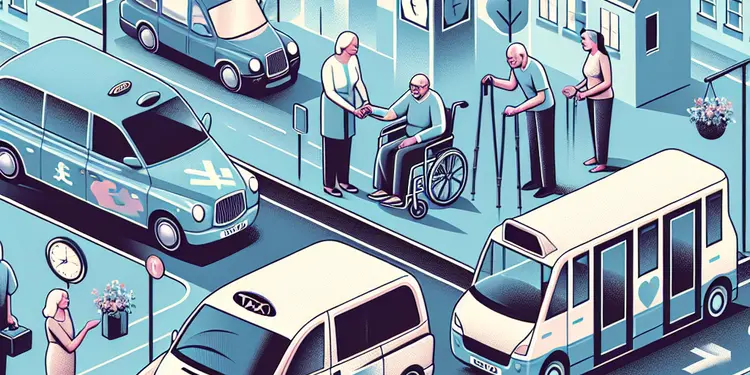
What transportation services are available for Alzheimer's patients and their carers?
Relevance: 52%
-
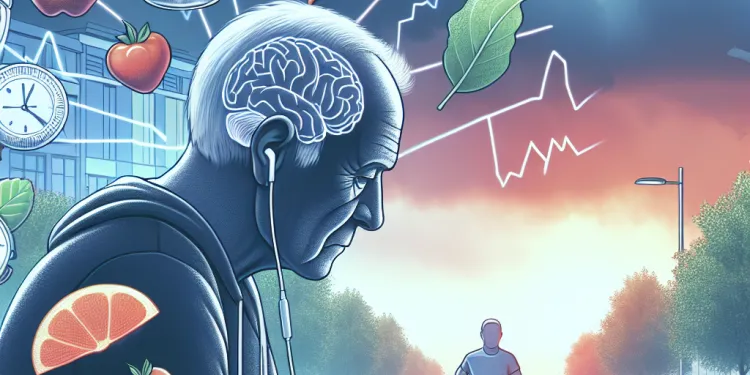
Are there any lifestyle changes that can help reduce the risk of Alzheimer's?
Relevance: 52%
-
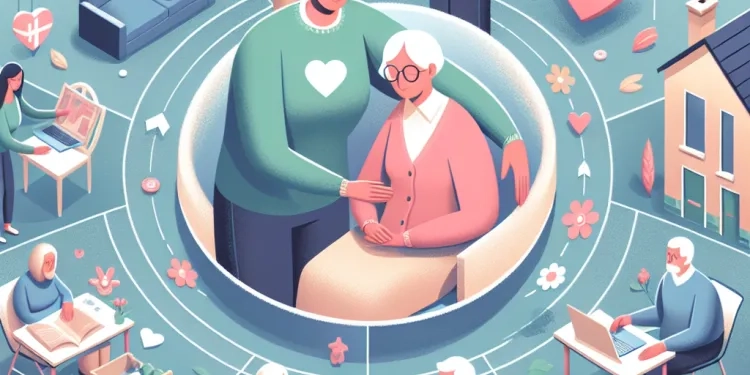
How can families support a loved one with Alzheimer's?
Relevance: 51%
-

What types of support are available for carers of Alzheimer's patients?
Relevance: 51%
-
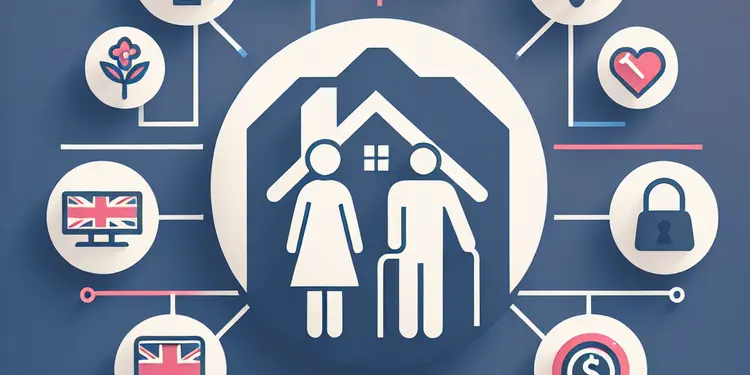
Can carers of Alzheimer's patients access in-home healthcare services?
Relevance: 51%
-

How important is self-care for carers of Alzheimer's patients?
Relevance: 51%
-

Are there specific apps or tools to help carers of Alzheimer's patients?
Relevance: 50%
-
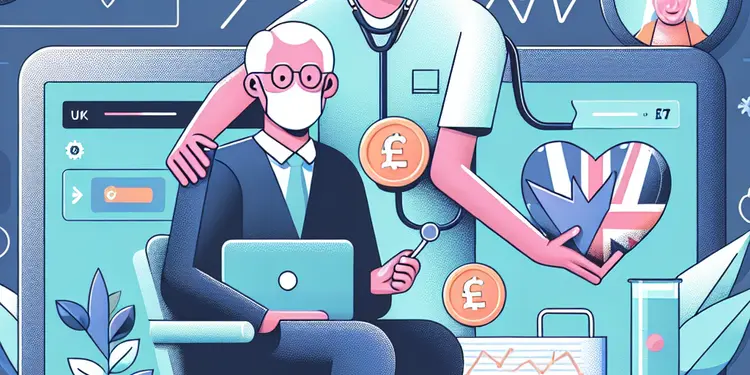
What emotional support is available for carers of Alzheimer's patients?
Relevance: 49%
-
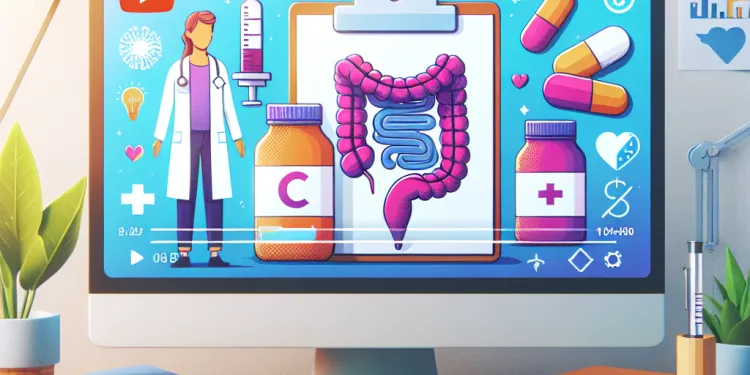
What treatments are available for Crohn's disease?
Relevance: 49%
-
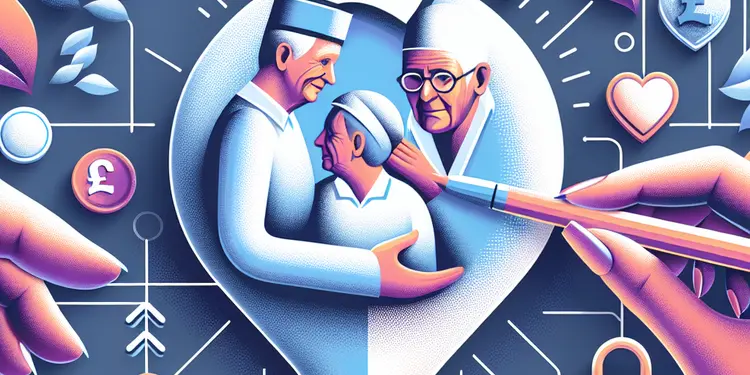
Are there financial support programs for carers of Alzheimer's patients?
Relevance: 49%
-

How can support groups benefit carers of Alzheimer's patients?
Relevance: 48%
-

What government assistance is available for carers of Alzheimer's patients?
Relevance: 47%
-
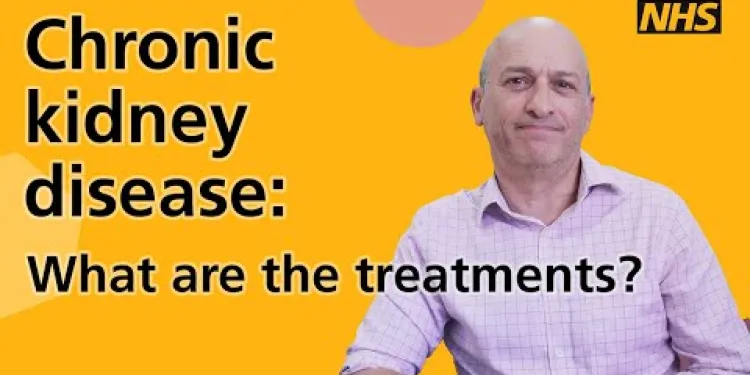
Chronic kidney disease: What are the treatments?
Relevance: 47%
-
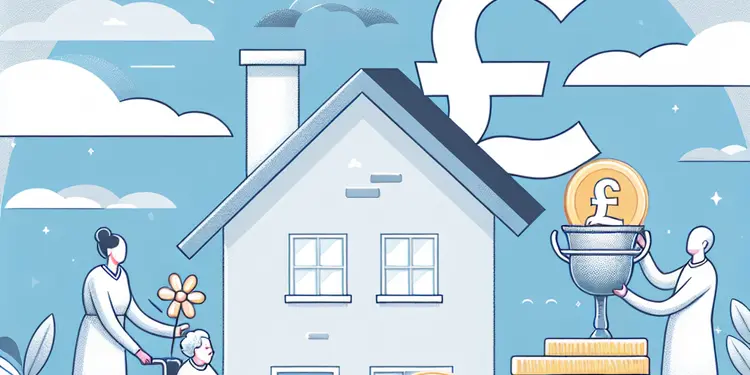
What legal resources are available for carers of Alzheimer's patients?
Relevance: 46%
-
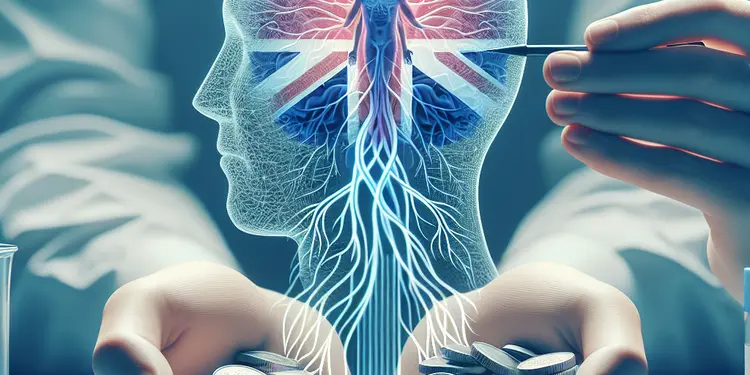
What treatments are available for motor neurone disease?
Relevance: 46%
-

Can flesh-eating disease recur after treatment?
Relevance: 46%
-

What is the finger prick blood test for Alzheimers?
Relevance: 42%
-

Are there treatments available for Huntington's disease?
Relevance: 42%
-

How can carers manage stress while caring for someone with Alzheimer's?
Relevance: 36%
-
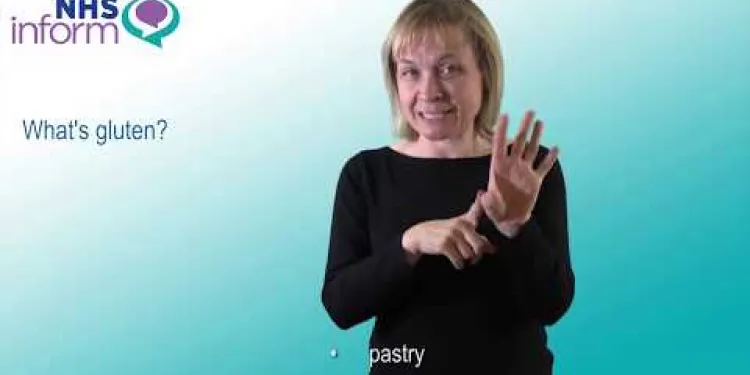
Coeliac disease
Relevance: 36%
-

Is there a cure for Crohn's disease?
Relevance: 36%
-

Can Lyme disease be treated?
Relevance: 35%
-

Liver disease | NHS
Relevance: 35%
-

What is Mitochondrial disease?
Relevance: 35%
Treatments Available for Alzheimer's Disease
Alzheimer’s disease is a progressive neurological disorder that leads to memory loss and cognitive decline. While there is no cure for Alzheimer’s, various treatments can help manage symptoms and improve the quality of life for those affected. In the United Kingdom, both pharmacological and non-pharmacological treatments are available. Here's an overview of these treatment options.
Medications
Currently, several medications are approved in the UK to help manage Alzheimer's symptoms. Cholinesterase inhibitors, such as Donepezil, Rivastigmine, and Galantamine, are prescribed to improve communication between nerve cells across the brain and are typically used in the early to moderate stages of the disease. Memantine is another medication prescribed for moderate to severe Alzheimer's, working by regulating the activity of glutamate, a neurotransmitter involved in learning and memory.
Non-Pharmacological Therapies
Apart from medication, there is a range of non-drug therapies available. Cognitive Stimulation Therapy (CST) is widely recommended, consisting of themed activity sessions designed to improve mental abilities. Cognitive Rehabilitation helps individuals with early-stage Alzheimer’s develop more effective ways of managing daily tasks. Occupational therapy can also help patients maintain independence by suggesting modifications to their living environments and teaching new coping methods.
Support for Caregivers
Supporting those who care for people with Alzheimer's is crucial, as caregivers often experience high levels of stress. In the UK, support groups, educational resources, and respite care options are available to help caregivers manage their responsibilities and maintain their well-being. Organizations like the Alzheimer's Society offer valuable resources and community support for both caregivers and patients.
Research and Future Treatments
Research into Alzheimer's treatment is ongoing, with scientists exploring new drug therapies and biological interventions that could modify the disease process. Clinical trials and studies in the UK are focusing on preventing Alzheimer's, slowing its progression, and treating symptoms more effectively. While breakthroughs take time, the commitment to finding more effective treatment options remains strong globally and nationally.
While treating Alzheimer's disease presents many challenges, a combination of medications, non-drug therapies, and support systems can significantly help manage symptoms and improve the quality of life for those affected. It's important for individuals diagnosed with Alzheimer’s and their families to work closely with healthcare providers to tailor a treatment plan suited to their specific needs.
Treatments Available for Alzheimer's Disease
Alzheimer's disease is an illness that affects the brain. It makes people forget things and think less clearly. There is no cure, but treatments can help manage symptoms and improve life quality. In the UK, there are medicine and non-medicine treatments to help. Here’s a simple guide on these treatment options.
Medications
Some medicines can help with Alzheimer's symptoms. In the UK, doctors might give medicines like Donepezil, Rivastigmine, and Galantamine. These are usually used when the disease is not too serious yet. They help nerve cells in the brain talk to each other better. For more serious Alzheimer's, the medicine Memantine can help. It helps with learning and memory.
Non-Pharmacological Therapies
Besides medicine, there are other ways to help. Cognitive Stimulation Therapy, or CST, has fun, themed activities to help the brain. Cognitive Rehabilitation teaches people to handle everyday tasks better. Occupational therapy helps people stay independent by making changes at home and teaching new ways to cope.
Support for Caregivers
Helping people who look after Alzheimer's patients is very important. Caregivers can feel very stressed. In the UK, support groups and educational resources are available to help them. They can also get some time off through respite care. The Alzheimer's Society helps both caregivers and patients with resources and community support.
Research and Future Treatments
Scientists are studying new ways to treat Alzheimer's. They are trying to find new drugs and methods to change how the disease works. In the UK, trials and studies aim to prevent Alzheimer's, slow it down, and treat symptoms better. Although results take time, research continues worldwide to find better treatments.
Treating Alzheimer's is challenging, but medicines, therapies without drugs, and support can help manage symptoms and make life better. It's important that people with Alzheimer’s and their families work with doctors to find a treatment plan that is right for them.
Frequently Asked Questions
What is the primary treatment for Alzheimer's disease in the UK?
The primary treatment often includes medications such as donepezil, galantamine, rivastigmine, and memantine.
Are there any non-drug treatments available for Alzheimer's patients?
Yes, non-drug treatments include cognitive stimulation, exercise programs, and managing lifestyle factors.
What is the goal of current Alzheimer's treatments?
The goal is to manage symptoms, maintain quality of life, and slow the progression of the disease.
How effective are current medications for Alzheimer's?
Medications can help manage symptoms, but their effectiveness varies and they do not cure or halt the disease.
Is there a cure for Alzheimer's disease?
Currently, there is no cure for Alzheimer's disease, but treatments aim to alleviate symptoms and improve quality of life.
What support is available for carers of Alzheimer's patients?
In the UK, support includes local support groups, respite care services, and resources from organisations like Alzheimer's Society.
Can lifestyle changes impact the progression of Alzheimer's?
Yes, lifestyle changes such as diet, physical activity, and social engagement can improve overall health and may impact disease progression.
Are there any new treatments for Alzheimer's on the horizon?
Research is ongoing, with many new treatments being tested in clinical trials, though none have yet been conclusively proven to halt the disease.
How is Alzheimer's typically diagnosed in the UK?
Diagnosis involves evaluating medical history, cognitive testing, brain imaging, and ruling out other conditions.
Can genetic testing determine my risk of developing Alzheimer's?
Genetic testing can indicate a higher risk, especially for early-onset cases, but it is not routinely recommended for all.
Is reminiscence therapy used for Alzheimer's patients in the UK?
Yes, reminiscence therapy is commonly used to support memory and social interaction among Alzheimer's patients.
What role do GPs play in the treatment of Alzheimer's?
GPs coordinate care, manage medication regimes, provide referrals to specialists, and support families and carers.
Are there any dietary supplements recommended for Alzheimer's?
There is no strong evidence for specific supplements, and it's important for patients to consult with healthcare professionals before using them.
What is the NICE guideline on medications for Alzheimer's?
The NICE guideline recommends acetylcholinesterase inhibitors for mild to moderate Alzheimer's and memantine for moderate to severe cases.
How can music therapy benefit Alzheimer's patients?
Music therapy can enhance mood, reduce agitation, and stimulate memories in Alzheimer's patients.
How do doctors in the UK help people with Alzheimer's?
Doctors in the UK give medicine to help people with Alzheimer's. This medicine helps with memory and thinking. People with Alzheimer's can also do activities that help their brain, like puzzles or games.
The main treatment usually includes medicines like donepezil, galantamine, rivastigmine, and memantine.
What treatments can help people with Alzheimer's without using medicine?
People with Alzheimer's can try different activities to help them feel better:
- Memory games: Simple games to help them remember things.
- Exercise: Walking or moving can help them stay healthy.
- Music: Listening to music they like can make them happy.
- Talking: Having conversations with friends and family can be nice.
- Drawing or painting: Being creative is fun and relaxing.
It is also important for their helpers to be patient and kind.
Yes, you can help without using medicine. Try brain games, doing exercise, and making healthy life changes.
What is the aim of today's Alzheimer's treatments?
We want to help people with Alzheimer's feel better. The medicine tries to slow down the sickness in their brains. This means the person might remember things longer. Treatments also help make life easier and more comfortable.
Here are some things that can help:
- Ask a doctor for advice on treating Alzheimer’s.
- Use a calendar to remember important dates.
- Play simple memory games to keep the brain active.
The main aim is to help with symptoms, keep a good life, and make the sickness get worse more slowly.
Do medicines for Alzheimer's work well?
Medicines can help with symptoms, but they do not work the same for everyone. Medicines can't stop or fix the disease.
Can Alzheimer's disease be fixed?
Right now, there is no way to make Alzheimer's disease go away completely. Doctors are working hard to find a cure. They have found some medicines that can help with memory and thinking for a while. But these medicines do not stop the disease.
People with Alzheimer's can get help to make life easier. They can use reminders, like notes or alarms, to help them remember things. It is important to ask a doctor for advice and support.
Right now, there is no way to make Alzheimer's disease go away completely. But there are treatments that can help with the symptoms and make life better for people who have it.
What help can carers of people with Alzheimer's get?
If you look after someone with Alzheimer's, there is help for you.
Here are some things you can use:
- Support groups: Talk to other people who are also carers.
- Respite care: Someone else can take care of the person for a short time so you can rest.
- Information: Learn more about Alzheimer's and how to care for someone with it.
Ask a doctor or nurse for more ideas.
In the UK, there are people and places that can help. You can find local groups where people talk and support each other. There are also places where carers can take a break, called respite care services. You can get help and information from groups like the Alzheimer's Society.
Can changing how you live help with Alzheimer's?
Changing how you live means doing things like eating healthy food, exercising, and keeping your brain active. This can help with Alzheimer's, which is an illness that makes it hard to remember things.
You can try to:
- Eat lots of fruits and vegetables.
- Go for walks or do exercises you like.
- Play games that make you think, like puzzles.
These things might help slow down Alzheimer's, but they don't fix it. Talk to a doctor for more help.
Yes, changing how you live can make you healthier. Eating good food, moving your body, and seeing friends can help. These things can make you feel better and maybe help slow down some illnesses.
Are there any new treatments for Alzheimer's coming soon?
Scientists are working on new ways to help people with Alzheimer's. They are trying to find new medicines and treatments.
If you or someone you know has Alzheimer's, ask a doctor to tell you about the newest treatments.
You can also use apps or tools to help remember things. Talking to family and friends can also be very helpful.
Scientists are still studying and trying out new treatments to stop the disease. They are testing these treatments on people in special studies called clinical trials. So far, none of the treatments have been shown to definitely stop the disease.
How do doctors find out if someone has Alzheimer's in the UK?
Doctors find out if someone has Alzheimer's by asking questions, doing tests, and sometimes taking pictures of the brain. It can help to take a friend or family member to the doctor’s visit for support.
You can also use simple tools like picture cards or apps that help explain things more clearly.
To find out what is wrong, doctors look at your medical history, do brain tests, look at brain pictures, and make sure it is not something else.
Can a test tell me if I might get Alzheimer's?
Some tests look at your genes. These are bits of information in your body. A test can show if you have a bigger chance of getting Alzheimer's. But the test cannot say for sure if you will get it.
It might help to talk to a doctor or a nurse. They can explain what the test means and what you can do to stay healthy.
Using pictures and simple charts can make it easier to understand. You can also ask someone you trust to read it with you.
Genetic tests can show if you have a higher chance of getting sick, especially if it happens early in life. But not everyone needs to have this test regularly.
Do doctors in the UK use memory activities to help people with Alzheimer's?
Doctors in the UK sometimes use special memory games and activities to help people with Alzheimer's. These activities help patients talk about old memories.
If you or someone you know has Alzheimer's, it might help to talk with doctors or experts who use these activities.
Yes, talking about old memories can help people with Alzheimer's disease. It can make their memory better and help them talk to other people.
How do GPs help people with Alzheimer's?
GPs are doctors that we see for general health. They help people with Alzheimer's in many ways:
- They listen to problems and symptoms.
- They do tests to check if someone has Alzheimer's.
- They help make a treatment plan.
- They give medication or advice if needed.
- They talk to other doctors and nurses to get more help.
GPs help families understand what is happening and answer questions. Using picture charts or getting help from a family member or friend can make visits easier.
Doctors help you get the care you need. They give you medicine and tell you how to take it. They can also send you to see other special doctors. Doctors are there to help you and your family feel better.
Are there vitamins or pills that help with Alzheimer's?
There are no vitamins or pills that can cure Alzheimer's. Some people take certain vitamins to help their brain, but you should always ask a doctor first. It's important to eat healthy foods too.
Here are some tips that might help:
- Ask a doctor about vitamins that are safe to take.
- Eat lots of fruits and vegetables.
- Try to eat fish once a week.
- Exercise regularly to keep your brain and body healthy.
It's always a good idea to talk to a doctor before trying any new vitamins or pills.
There is no strong proof that certain pills or vitamins help a lot. It's important to talk to a doctor or nurse before taking them.
What does NICE say about medicine for Alzheimer's?
NICE tells doctors what medicine to use for Alzheimer's. They help choose what medicine can make someone feel better. You can ask your doctor for help if you need medicine.
If you need help to understand, you can:
- Ask someone to read it with you.
- Use pictures to remember things.
- Ask your doctor to explain it.
The NICE guideline suggests using special medicines for Alzheimer's. For mild to moderate stages, it recommends medicines called acetylcholinesterase inhibitors. For more serious stages, called moderate to severe, it recommends a medicine called memantine.
How Does Music Help People with Alzheimer's?
People with Alzheimer's can feel better with music. Music can help them remember happy times. It can make them feel calm and happy.
Listening to songs they know can make them smile. Playing music or singing with others can be fun.
To help someone, try these tips:
- Play their favorite songs.
- Sing together.
- Use soft music to help them relax.
Music can help people with Alzheimer's feel better. It can make them happier, calm them down, and help them remember things.
Here are some tips to try:
- Play songs they liked when they were younger.
- Use headphones for less distraction.
- Sing along with them if they can.
- Watch their reactions to see if they enjoy it.
Useful Links
This website offers general information and is not a substitute for professional advice.
Always seek guidance from qualified professionals.
If you have any medical concerns or need urgent help, contact a healthcare professional or emergency services immediately.
- Ergsy carfully checks the information in the videos we provide here.
- Videos shown by Youtube after a video has completed, have NOT been reviewed by ERGSY.
- To view, click the arrow in centre of video.
- Most of the videos you find here will have subtitles and/or closed captions available.
- You may need to turn these on, and choose your preferred language.
- Go to the video you'd like to watch.
- If closed captions (CC) are available, settings will be visible on the bottom right of the video player.
- To turn on Captions, click settings .
- To turn off Captions, click settings again.
More Items From Ergsy search
-

What treatments are available for Alzheimer's disease?
Relevance: 100%
-

What is Alzheimer's disease?
Relevance: 90%
-

How common is Alzheimer's disease in the UK?
Relevance: 88%
-

What are the stages of Alzheimer's disease?
Relevance: 83%
-

What causes Alzheimer's disease?
Relevance: 82%
-

Can Alzheimer's disease be prevented?
Relevance: 82%
-

How is Alzheimer's disease diagnosed?
Relevance: 81%
-

What are the symptoms of Alzheimer's disease?
Relevance: 79%
-

Who is at risk of developing Alzheimer's disease?
Relevance: 78%
-

What role does genetics play in Alzheimer's disease?
Relevance: 75%
-

Where can I find information about Alzheimer's disease for carers?
Relevance: 71%
-

How can carers plan for future stages of Alzheimer's disease?
Relevance: 70%
-

How does Alzheimer's affect daily life?
Relevance: 60%
-

Can technology aid in the care of Alzheimer's patients?
Relevance: 58%
-

What support is available for carers of Alzheimer's patients?
Relevance: 55%
-

What online communities exist for carers of people with Alzheimer's?
Relevance: 53%
-

What transportation services are available for Alzheimer's patients and their carers?
Relevance: 52%
-

Are there any lifestyle changes that can help reduce the risk of Alzheimer's?
Relevance: 52%
-

How can families support a loved one with Alzheimer's?
Relevance: 51%
-

What types of support are available for carers of Alzheimer's patients?
Relevance: 51%
-

Can carers of Alzheimer's patients access in-home healthcare services?
Relevance: 51%
-

How important is self-care for carers of Alzheimer's patients?
Relevance: 51%
-

Are there specific apps or tools to help carers of Alzheimer's patients?
Relevance: 50%
-

What emotional support is available for carers of Alzheimer's patients?
Relevance: 49%
-

What treatments are available for Crohn's disease?
Relevance: 49%
-

Are there financial support programs for carers of Alzheimer's patients?
Relevance: 49%
-

How can support groups benefit carers of Alzheimer's patients?
Relevance: 48%
-

What government assistance is available for carers of Alzheimer's patients?
Relevance: 47%
-

Chronic kidney disease: What are the treatments?
Relevance: 47%
-

What legal resources are available for carers of Alzheimer's patients?
Relevance: 46%
-

What treatments are available for motor neurone disease?
Relevance: 46%
-

Can flesh-eating disease recur after treatment?
Relevance: 46%
-

What is the finger prick blood test for Alzheimers?
Relevance: 42%
-

Are there treatments available for Huntington's disease?
Relevance: 42%
-

How can carers manage stress while caring for someone with Alzheimer's?
Relevance: 36%
-

Coeliac disease
Relevance: 36%
-

Is there a cure for Crohn's disease?
Relevance: 36%
-

Can Lyme disease be treated?
Relevance: 35%
-

Liver disease | NHS
Relevance: 35%
-

What is Mitochondrial disease?
Relevance: 35%


